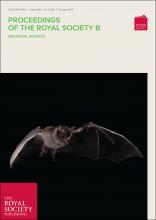
Following questions about the veracity of multiple papers by his former employer, high-profile social psychologist Jens Förster has agreed to retract two papers as part of a deal with the German Society for Psychology (DGPs).
Last year, Förster had a paper retracted at the request of his former employer, the University of Amsterdam (UvA). In May, an investigation commissioned by UvA found that many of his experiments looked “too good to be true,” and eight papers showed strong signs of “low veracity.”
Just two of those papers are acknowledged in the settlement of a case by the DGPs against Förster, who currently works at Ruhr University Bochum. Here’s a translation of a notice from the DGPs from One Hour Translation:
Continue reading Psychologist Jens Forster settles case by agreeing to 2 retractions



 We’ve learned about two more retractions we missed for
We’ve learned about two more retractions we missed for 

 A 13th retraction has been published for
A 13th retraction has been published for 
